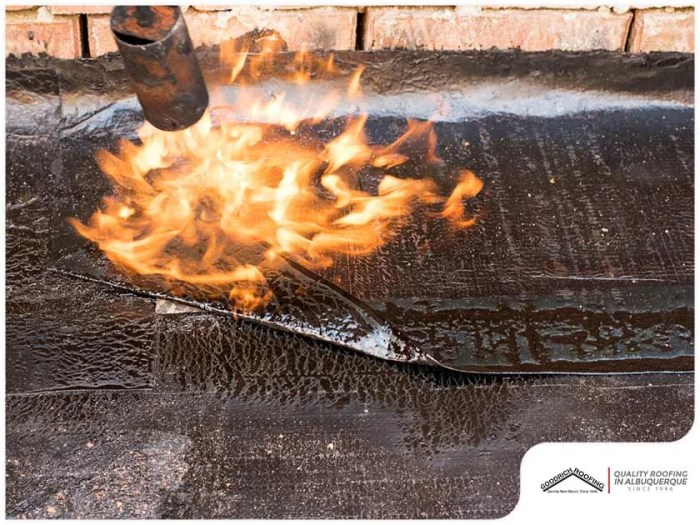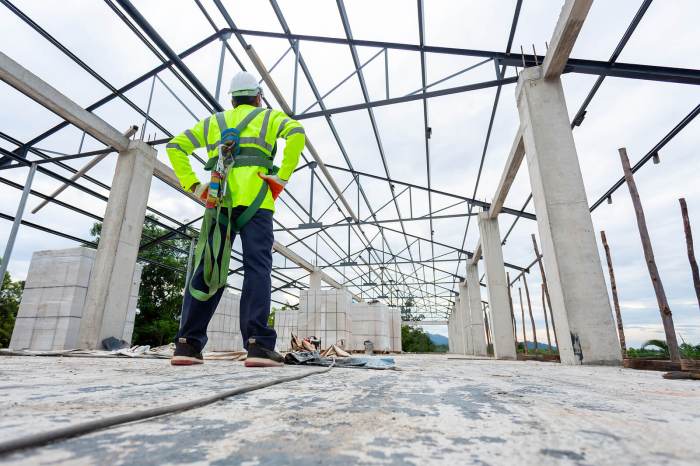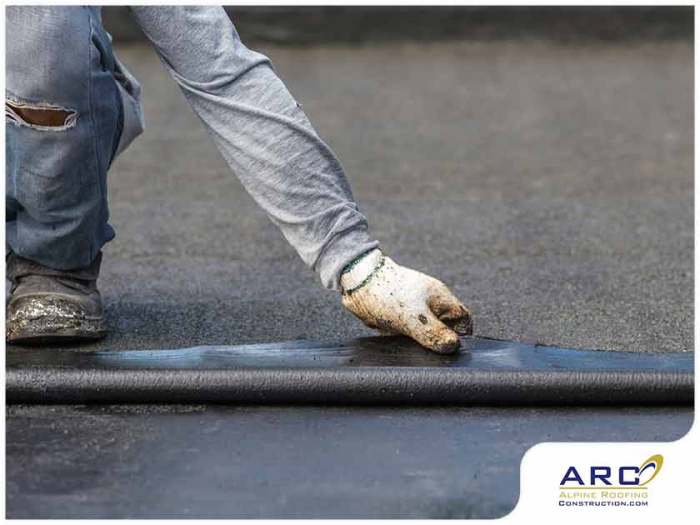
Embark on a journey through the realm of Commercial Roofing Warranties You Should Know, where we unravel the intricacies of warranty options, coverage details, and key considerations. Brace yourself for a deep dive into the world of commercial roofing warranties.
Explore the nuances of different warranty types and understand why grasping the fine print is essential for businesses venturing into the world of commercial roofing.
Types of Commercial Roofing Warranties
When it comes to commercial roofing, there are several types of warranties available to provide protection and peace of mind for building owners. These warranties can vary in coverage, duration, and terms, so it's important to understand the differences between them.
Manufacturer Warranties
Manufacturer warranties are typically provided by the company that produces the roofing materials. These warranties often cover defects in materials and workmanship for a specified period, such as 10, 20, or 30 years. They may also offer protection against premature aging or failure of the roofing system.
Examples of manufacturer warranties include GAF's System Plus Limited Warranty and CertainTeed's Integrity Roof System Warranty.
Contractor Warranties
On the other hand, contractor warranties are offered by the roofing contractor who installs the roof. These warranties cover the installation work and labor for a certain period, which is usually shorter than manufacturer warranties. Contractor warranties may range from 1 to 10 years and typically cover issues related to improper installation or workmanship.
An example of a contractor warranty is ABC Roofing's Workmanship Warranty.
Comparison
Manufacturer warranties and contractor warranties serve different purposes and provide distinct types of coverage. Manufacturer warranties focus on the materials used in the roof and potential manufacturing defects, while contractor warranties address the quality of the installation work. It's important for building owners to have both types of warranties to ensure comprehensive protection for their commercial roof.
Importance of Understanding Warranty Coverage
Understanding the coverage of commercial roofing warranties is crucial for businesses to avoid potential issues down the line. By knowing exactly what is included in the warranty, businesses can protect themselves from unexpected expenses and ensure that their roofing system is properly maintained.
Potential Consequences of Overlooking Warranty Terms
- Failure to meet maintenance requirements: Some warranties may require regular inspections and maintenance to remain valid. If these terms are overlooked, businesses risk voiding their warranty coverage.
- Incorrect installation or repairs: Misinterpreting warranty terms could lead to using unauthorized contractors for repairs or installations, which may not be covered under the warranty.
- Denial of warranty claims: Lack of understanding about what is covered under the warranty can result in claims being denied when issues arise, leaving businesses to bear the full cost of repairs.
Real-Life Examples of Warranty Issues
- In one case, a business neglected to schedule annual inspections as required by their warranty. When a leak occurred, the warranty claim was denied due to failure to meet maintenance requirements.
- Another business misunderstood the terms of their warranty and hired a contractor who was not certified by the roofing manufacturer. When issues arose, the repairs were not covered under the warranty.
- A lack of understanding about what was covered under a warranty led to a business assuming all repairs would be included. When a specific issue arose that was not covered, the business faced unexpected costs for the repair.
Key Factors to Consider in Commercial Roofing Warranties

When evaluating commercial roofing warranty options, there are several key factors that businesses should consider to ensure they select the most suitable coverage for their needs.
Roof Type
Different types of commercial roofing materials have specific warranty requirements and limitations. Factors such as the age of the roof, installation methods, and materials used can impact the coverage offered by warranties. It is essential to understand how the warranty aligns with the specific characteristics of your roof type to ensure comprehensive protection.
Climate
The climate in which a commercial building is located plays a significant role in the longevity and performance of the roof. Extreme weather conditions, such as heavy rainfall, strong winds, or intense sunlight, can accelerate wear and tear on the roof
When selecting a warranty, businesses should consider how well the coverage addresses potential climate-related damages to ensure adequate protection.
Maintenance Requirements
Most commercial roofing warranties have maintenance requirements that must be followed to keep the warranty valid. Failure to adhere to these maintenance guidelines could void the warranty, leaving the business responsible for any repairs or replacements. It is crucial for businesses to review and understand the maintenance obligations Artikeld in the warranty to avoid any potential issues in the future.
Common Misconceptions About Commercial Roofing Warranties

When it comes to commercial roofing warranties, there are several misconceptions that can lead to confusion and misinformation. It is essential to debunk these myths to ensure that business owners have a clear understanding of their warranty coverage.
Warranty Length Determines Roof Longevity
One common misconception is that the length of the warranty is directly correlated with the lifespan of the roof. While a longer warranty may provide peace of mind, it does not guarantee the actual longevity of the roof. Factors such as installation quality, maintenance, and environmental conditions play a more significant role in determining the roof's lifespan.
All Damages Are Covered Under Warranty
Another misconception is that all damages to the roof are covered under the warranty. In reality, warranties have specific terms and conditions outlining what is and is not covered. It is crucial for business owners to read and understand these terms to avoid any surprises when filing a warranty claim.
Warranty is Transferable with Property Ownership
Many business owners believe that the warranty automatically transfers with the property ownership. However, most warranties are non-transferrable and may require specific procedures to transfer to a new owner. It is essential to clarify this with the roofing contractor to avoid any misunderstandings in the future.
Ending Remarks

As we wrap up our exploration of Commercial Roofing Warranties You Should Know, it's crucial to remember the importance of thorough understanding and careful consideration when it comes to safeguarding your commercial roofing investment. Equip yourself with knowledge to make informed decisions and ensure long-lasting protection for your commercial property.
Top FAQs
What are the different types of commercial roofing warranties?
Commercial roofing warranties typically include manufacturer warranties and contractor warranties, each offering distinct coverage benefits. Manufacturer warranties often cover materials, while contractor warranties focus on workmanship.
Why is it essential to fully understand commercial roofing warranty coverage?
Understanding warranty coverage is crucial for businesses to avoid potential issues with claims and ensure they receive the expected protection for their roofing investment.
What key factors should businesses consider when evaluating commercial roofing warranty options?
Factors such as roof type, climate conditions, and maintenance requirements play a significant role in selecting the right warranty. Businesses should also review warranty terms thoroughly to align with their specific needs.
What are some common misconceptions about commercial roofing warranties?
Common misconceptions include beliefs that all warranties offer the same coverage and that maintenance is not necessary with a warranty in place. It's important to dispel these myths to make informed decisions.











